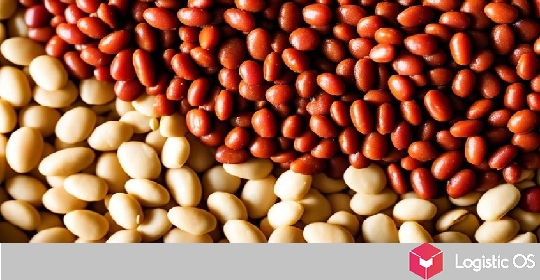A bill on amendments to the law «On grain» has been submitted to the State Duma.
This document provides for the creation in Russia of a unified information system for grain traceability and quality control.
The Ministry of Agriculture of Russia announced a proposal to create a control system in December last year.
In essence, this bill is similar to the already working «Mercury», only now not for livestock breeders, but for plant breeders.
The Ministry assumes that the proposed structure will allow collecting information on all companies involved in the production, transportation, storage and processing of grain.
All market players will be obliged to be registered in the new data collection system, and entering inaccurate information into it will be punished at the legislative level.
Grain production is the largest sub-sector of agriculture and one of the most important types of agricultural products that the country supplies to foreign markets.
Moreover, Russia is one of the three largest world exporters.
At the moment, there is no control over the quantity and quality of grain that each region produces and how much it exports.
Also, there is no system for quality control of grain at all stages of its life cycle.
The bill provides for the introduction of such a concept as SIDZ — a document that will contain all information about the transported grain or its processed product and which will allow tracking its transportation by any type of transport.
This document will be drawn up by authorized organizations, and sale of grain on the territory of the Russian Federation, as well as its export and import without SIDZ will be impossible.
The opinions of experts on the need to introduce the bill were divided.
Some believe that this initiative will eliminate «gray» schemes in the supply of grain, when the goods are delivered without accompanying documents.
For example, transactions with some buyers from the CIS, as well as the EAEU (in particular, the export of grain by road) may not be included in any statistics.
This is due to the fact that grain shipments by rail are monitored, and there is no reliable data on deliveries by road (which is about 65%).
There is evidence that about 2 million tons of grain went to Kazakhstan, and according to official data, it is three times less.
Other experts agree that the law does not address the main issues of the functioning and regulation of the grain market, but focuses only on the control and supervisory function.
According to their calculations, the introduction of this bill will increase the costs of grain producers by 25-30 billion rubles a year, which will automatically lead to a decrease in competitiveness — all additional costs will be included in the producer’s price.
If you follow a similar tracking system, the grain should be in separate storage, and its cost is about 30% more expensive than usual.
In addition, experts want to get clarity on the issue of duplication of data collection: initially it is necessary to consolidate those systems that already exist and only then, after understanding what the market really lacks, to adopt new bills.
In any case, a lot of time will pass from the adoption of such a law to its normal functioning, because there are a large number of grain producers, processors, traders and other participants in this process.
But, ultimately, digitalization of all market processes will contribute to the fact that competition will become more honest, and the market itself will move towards the practices of other countries.
The bill is expected to come into force on January 1, 2022.

